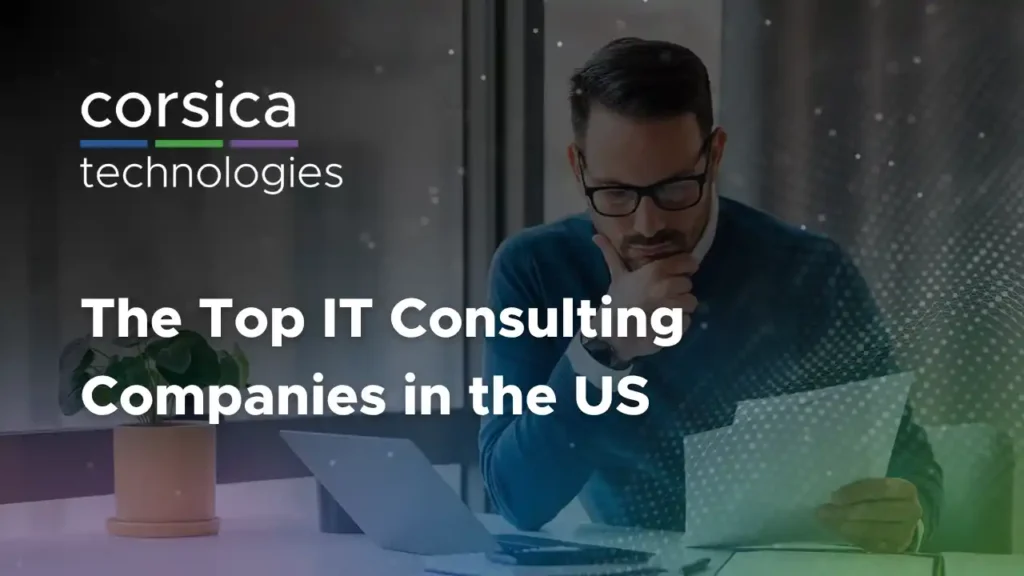Last updated September 22, 2025.
Modern ERP systems are incredibly powerful. There’s a platform for every size of organization in every industry—and there are numerous integrations, hosting options, and consulting companies to choose from.
How do you pick the right ERP system for your organization?
Should you work with an ERP consultancy?
If so, should you engage them for managed services after go-live? Or should you support your ERP system yourself?
Here’s everything you need to know about ERP consulting.
TL;DR version:
- ERP consulting may offer a better value than hiring ERP staff.
- ERP consultants can help with any ERP challenge, from implementation to optimization.
- ERP projects can take 3-24 months to complete.
- The cost of ERP consulting varies widely based on project complexity.
- The best ERP consultants provide support after launch.
- ERP consultants can help ensure proper adoption of your ERP system.
1. What is ERP consulting?
ERP consulting is the process of engaging a team of experts to assist with implementing, integrating, or updating an ERP (enterprise resource planning) system. ERP consulting can take many forms depending on your needs. These engagements often cover high-level business goals, such as:
- Determining your ideal ERP configuration
- Scoping and implementing a new ERP system
- Integrating your ERP with essential systems like EDI, CRM, SCM, and others
- Migrating from an on-premises ERP to a cloud-hosted solution
- Optimizing your existing ERP to streamline business processes
- Reconfiguring your existing ERP to achieve regulatory compliance
- Implementing proper cybersecurity controls for your ERP
The best ERP consultants have deep experience as well as knowledge of your industry. They can handle whatever ERP challenges you face, no matter how complex.
2. What are the benefits of ERP consulting?
It’s challenging to hire and retain a team of ERP experts. These professionals are in high demand, which means they earn large salaries and change jobs frequently.
This is why many organizations turn to ERP consulting, which offers several benefits when compared to staff hiring.
- Technical expertise. ERP systems are incredibly complex, and each ERP platform (for example, Microsoft Dynamics, Oracle NetSuite, Sage, or SAP) functions in its own way. ERP experts typically build their career on one platform—and you gain access to that expertise through consulting.
- Strategic perspective. You know your own operations thoroughly. But what about the industry at large? Are there any best practices you could adopt to become more efficient or competitive? ERP consultants provide this outside perspective, helping you get the most out of your ERP.
- Affordability. It’s far cheaper to engage ERP consulting services for projects and ongoing support than to keep ERP experts on staff.
- Flexibility. Every ERP system needs ongoing support. Most organizations also need periodic assistance in adjusting their ERP environment to changing business needs. ERP consulting services give you the flexibility you need to address challenges as they arise.
- Unified technology management. If you choose a partner like Corsica Technologies, you get an integrated approach to your ERP and any other services you need. For example, many clients choose to engage Corsica for managed cybersecurity, managed IT services, and ERP consulting. This creates a unified approach to technology management—and it eliminates the communication and ownership problems that arise when multiple vendors have to work together.

3. When should we engage an ERP consulting firm?
There are 5 major scenarios that typically require ERP consulting.
- Implementing your first ERP system. If your organization has never used an ERP, it’s important to get that first implementation right. You want to take your existing processes, optimize them to align with best practices, and model those processes in your ERP configuration. And that’s just the beginning—before you get to building, testing, and launching the system.
- Optimizing your existing ERP system. Your ERP requirements may change over time—or perhaps your system wasn’t implemented properly in the first place. Whatever the reason, streamlining and improving your ERP system often requires input from expert consultants.
- Upgrading your ERP system. If you’re running a specific version of your ERP software, and it’s time to upgrade to the latest version, you’ll want to engage ERP consulting services. Testing, preparation, and refinement will ensure that all your workflows translate properly in the new version.
- Migrating to a new ERP system. Perhaps you’ve outgrown your ERP—or maybe you need to move from an on-premises system to a cloud solution. ERP migrations are incredibly complex, and consulting services ensure that you transition smoothly to a system that’s properly fitted to your needs.
- Integrating an acquired company. If you’re going through an M&A process, how will the new company merge into your backend processes? What will that look like in terms of an ERP system (or systems)? ERP consulting services can help you identify the right path to a smooth transition.
- Integrating your ERP with other systems. While ERP systems are designed to be the backbone of your business, your organization has numerous software solutions that partly overlap with the functions of an ERP. In some cases, these functions should be moved to the ERP, and the redundant systems should be retired. In other cases, you should retain the system and integrate it with your ERP. Solutions like EDI, CRM, WMS, SCM, and others often require consulting services to get them properly integrated with your ERP.
4. What should we expect from an ERP consulting firm?
The best ERP consulting firms put their clients first. They won’t steer you toward a solution that’s not in your best interests; rather, they work closely with you to determine what’s right for your organization. Then they bring a proven framework for implementing and integrating your ERP.
Here’s what you should expect from an ERP consulting company.
- An empathic approach. ERP consulting isn’t about selling you the most expensive thing on the market. It’s really about listening. The best consulting companies use a highly collaborative approach to uncover your needs, align potential solutions, and incorporate feedback every step of the way.
- Technical command of your ERP system. Every ERP platform has its strengths, weaknesses, and quirks. Your ERP consultants should know your chosen platform inside and out.
- A proven framework. The complexity of ERP systems requires a flexible implementation methodology. But you don’t want to start with a blank slate. That’s why the best ERP consultants come with proven processes—yet they also maintain flexibility to adapt to your situation.
- An emphasis on cybersecurity. As the home of critical business data, your ERP will be targeted by cyber criminals. The right consulting services should include a strong focus on ERP security.
5. How long does an ERP implementation take with a consultant?
For most organizations, an ERP implementation is one of the biggest projects they will ever undertake. An ERP system touches every part of the business, every department, and (theoretically) every datapoint that the organization generates or consumes.
ERP implementations vary greatly in their complexity. Smaller companies with simpler processes and technology environments won’t take as long to implement ERPs as larger companies.
Here are the time ranges that we typically see with our ERP consulting clients.
- Small businesses: 3-6 months
- Midmarket companies: 6-12 months
- Enterprises: 9-24 months

6. How much does ERP consulting cost?
ERP consulting services are typically billed on an hourly basis. The exact cost will depend on the consultancy’s billing rates (usually $100 – $300 per hour) and the complexity of the project.
Here’s a table with three sample project sizes and estimated ERP consulting costs.
| $100/hour | $200/hour | $300/hour | |
| Simple project (300 hours) | $30,000 | $60,000 | $90,000 |
| Intermediate project (3,000 hours) | $300,000 | $600,000 | $900,000 |
| Complex project (10,000+ hours) | $1,000,000+ | $2,000,000+ | $3,000,000+ |
7. Can a consultant help compare cloud ERP vs. on-premises ERP?
Yes! ERP consultants should be familiar with cloud vs. on-premises options for ERP systems. They can help you evaluate your options in several ways.
- Cost analysis. Ultimately, which will cost more—a cloud-hosted ERP or an on-premises ERP?
- Support burden. In your context, which system will require more support?
- Integration capabilities. Which option has simpler integration capabilities with your other essential systems?
The exact comparison of cloud ERPs vs. on-premises will depend on your requirements. Get in touch with us today to start comparing these ERP hosting models for your organization.
8. How do ERP consultants help with vendor selection?
ERP consultants usually engage in a discovery process to understand your organization’s operational challenges and ERP requirements. The findings of this process allow a consultancy to recommend specific platforms, hosting models, and integrations to meet your company’s needs.
ERP consultancies typically partner with one or more ERP platform providers. Look for a consultancy that works with more than one platform. These providers are more likely to recommend a vendor that’s aligned with your interests, since they have multiple partners to choose from.

9. Can a consultant integrate ERP with my existing systems (CRM, EDI, etc.)?
Yes! ERP integration projects are incredibly common in the ERP consulting world. The right consultancy can help you with:
- Ecommerce integration
- CRM integration
- EDI integration
- WMS integration
- SCM integration
- MRP integration
If you need any form of ERP integration, you should look for a consultancy that can implement and support your integrations—not just consult on them. Ideally, you want one cohesive team handling this from start to finish to ongoing support.
10. Can a consultant fix or optimize a failed ERP implementation?
Yes. The best ERP consultancies can take a dysfunctional ERP environment and make it work for your organization.
The question is how much work is required—and whether the value is there.
Some problematic ERP implementations are worth fixing. The cost can be justified by the value delivered.
In other cases, it may be more cost-effective (and less disruptive) to migrate to a new ERP system.
The answer depends on many factors such as operational friction, cost of data errors, required timeline, and the organization’s willingness to invest in a fix. An ERP consultancy can help you determine the best path forward in your situation.
11. Do ERP consultants provide support after go-live?
The answer depends on whether your provider offers managed services in addition to consulting.
If your provider is strictly a consultancy, without managed services, their support will most likely end after hypercare (usually a two-week period following go-live). In this case, you’ll have to support your ERP system in-house or work with a different provider for managed services.
If your provider offers managed services in addition to ERP consulting, then you can also engage them for ongoing ERP support. That’s our model here at Corsica Technologies. We can support your ERP needs all the way from scoping to implementation and ongoing support.

ERP user adoption depends on two factors:
- Value to internal users
- Communication with internal users
By default, a new ERP system should provide plenty of value to your internal users. If it didn’t, you wouldn’t undertake a costly implementation.
The key, then, is to communicate that value to internal users. You want to do it consistently, and you want to make it relevant to users in specific departments. For example, the finance department will require different communication than the operations team. And the content that you share with each department will depend on your unique processes and their intended execution in your new ERP system.
ERP consulting services can help you design and implement this communication. Expert consultants have seen ERP implementations in many contexts. They know the pitfalls, and they know how to deal with roadblocks to adoption.
The takeaway: Choose the right ERP consultancy for your organization
Not every ERP consultancy is equipped to help your organization with its specific challenges. From regulatory compliance to integrations, complexity is the name of the game. Here at Corsica Technologies, we’ve helped 1,000+ clients solve their operational problems through technology. Reach out to us today to start the next stage of your ERP journey.

Want to take the next step with your ERP system?
Reach out to schedule a consultation with our ERP specialists.













